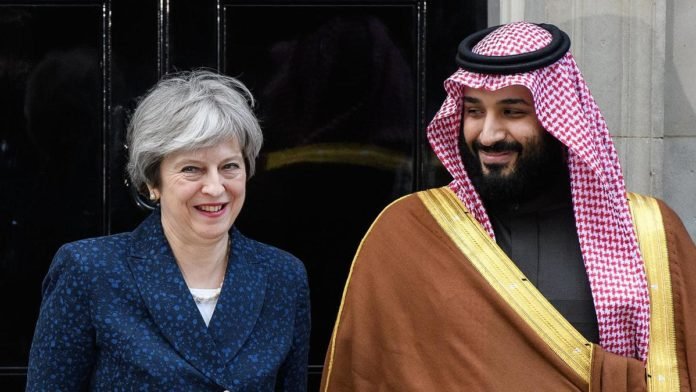The execution of 37 people convicted on “terrorism” charges marks an alarming escalation in Saudi Arabia’s use of the death penalty, Amnesty International said today.
Among those executed was a young man who was convicted of a crime that took place while he was under the age of 18.
Lynn Maalouf, Amnesty International’s Middle East Research Director, said:
“Today’s mass execution is a chilling demonstration of the Saudi Arabian authorities callous disregard for human life. It is also yet another gruesome indication of how the death penalty is being used as a political tool to crush dissent from within the country’s Shi’a minority.
“The use of the death penalty is always appalling but it is even more shocking when it is applied after unfair trials or against people who were under 18 at the time of the crime, in flagrant violation of international law.
“Instead of stepping up executions at an alarming rate in the name of countering terrorism, Saudi Arabia’s must halt this bloody execution spree immediately and establish an official moratorium on executions as a first step towards abolishing the death penalty completely.”
The majority of those executed were Shi’a men who were convicted after sham trials that violated international fair trial standards which relied on confessions extracted through torture.
They include 11 men who were convicted of spying for Iran and sentenced to death after a grossly unfair trial. At least 14 others executed were convicted of violent offences related to their participation in anti-government demonstrations in Saudi Arabia’s Shi’a majority Eastern Province between 2011 and 2012. The 14 men were subjected to prolonged pre-trial detention and told the court that they were tortured or otherwise ill-treated during their interrogation in order to have ‘confessions’ extracted from them.
Also among those executed is Abdulkareem al-Hawaj – a young Shi’a man who was arrested at the age of 16 and convicted of offences related to his involvement in anti-government protests.
Under international law, the use of the death penalty against people who were under the age of 18 at the time of the crime is strictly prohibited.
Amnesty understands that the families were not informed about the executions in advance and were shocked to learn of the news.
All of those executed today were Saudi Arabian nationals. So far this year, at least 104 people have been executed by Saudi Arabia – at least 44 of them are foreign nationals, the majority of whom were convicted of drug-related crimes. In 2018, Saudi Arabia carried out 149 executions during the whole year.
Ali al-Nimr, Dawood al-Marhoon and Abdullah al-Zaher, from the Shi’a minority and who were below the age of 18 at the time of the crime, remain on death row and at imminent risk of execution.
“It is also yet another gruesome indication of how the death penalty is being used as a political tool to crush dissent from within the country’s Shia minority,” said Lynn Maalouf, Amnesty International’s Middle East Research Director.
“The use of the death penalty is always appalling but it is even more shocking when it is applied after unfair trials or against people who were under 18 at the time of the crime, in flagrant violation of international law.,” she added.
Shia citizens of Saudi Arabia, who make up 10-15 per cent of the country’s population, have longed complained of discrimination at the hands of Saudi authorities.
In 2017, deadly clashes broke out between Saudi security forces and Shia militants in the country’s east following demolitions in the Shia town of Awamiya. At least 20 civilians were killed.
Saudi Arabia is one of the world’s top executioners, behind only China and Iran. While executions have fallen worldwide in recent years, Saudi Arabia has seen an increase, and looks set to break records in 2019. It carried out 149 executions in 2018.
This is a "Pay as You Feel" website Please help keep us Ad Free.
You can have access to all of our online work for free. However if you want to support what we do, you could make a small donation to help us keep writing. The choice is entirely yours.

























